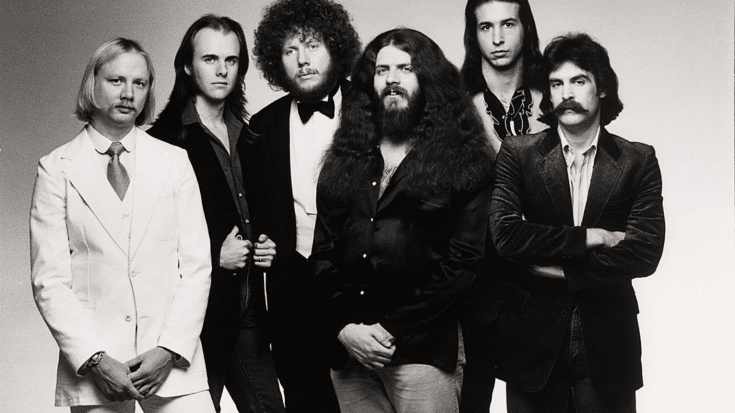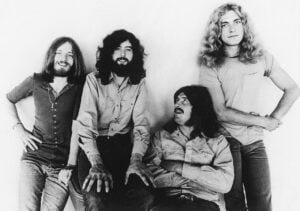7 70s Bands That Couldn’t Adapt to the 80s

via Georgy Porgy's Favorites / YouTube
The 1970s saw the rise of many legendary bands, but not all of them managed to keep up with the changes in music during the 1980s. As styles shifted towards new wave, synthesizers, and slicker production, some groups struggled to evolve. Here’s a look at seven bands that couldn’t find their place in the 80s.
1. Kansas
Kansas delivered a string of rock hits in the 70s with their progressive rock sound. Known for songs like “Carry On Wayward Son” and “Dust in the Wind,” they thrived with intricate arrangements and soaring melodies. However, as the 80s rolled in, their style seemed increasingly outdated.
They attempted to adjust by embracing a more radio-friendly sound, but it didn’t connect with listeners. New wave bands dominated the charts, leaving Kansas struggling to stay relevant. While they kept a loyal fan base, the 80s were far from their glory days.
2. Grand Funk Railroad
Grand Funk Railroad enjoyed huge popularity in the 70s, known for their gritty rock sound and high-energy performances. Their hits like “We’re an American Band” and “Some Kind of Wonderful” resonated with fans. Yet, the band’s straightforward rock approach didn’t translate well to the more polished music of the 80s.
When the music scene shifted toward synth-pop and slick production, Grand Funk Railroad’s raw style fell out of favor. They attempted comebacks throughout the 80s, but none of their new releases matched their earlier success. Their sound seemed stuck in a different era.
3. Styx
Styx gained fame in the 70s with their blend of progressive rock and melodic ballads, featuring hits like “Come Sail Away” and “Renegade.” Their theatrical stage shows and ambitious concepts found a strong following. But the changing tastes of the 80s posed a challenge they couldn’t quite meet.
Their attempts to embrace a more commercial sound in the 80s resulted in internal disagreements within the band. By the mid-80s, members were at odds over musical direction, leading to a split. Though they tried to evolve, they couldn’t quite match their earlier success.
4. Boston
Boston’s debut album in the mid-70s was a massive hit, blending rock with polished production. Their arena-sized anthems like “More Than a Feeling” became rock radio staples. However, the band struggled with long gaps between albums, and their sound felt increasingly out of place as the 80s progressed.
Their meticulous approach to production delayed releases, causing them to miss the momentum of the changing music scene. By the time they returned with new material, audiences had moved on to newer sounds, and Boston couldn’t recapture their former prominence.
5. Jefferson Starship
After transitioning from the 60s with Jefferson Airplane to the 70s with Jefferson Starship, the band attempted to navigate the changes of the 80s. Their earlier work had been experimental and psychedelic, but they sought to adopt a more pop-friendly style in the new decade.
While they had some success with radio hits, tensions within the band led to lineup changes and creative conflicts. These struggles made it difficult for them to maintain a consistent sound, and they failed to keep pace with newer acts dominating the charts.
6. Foreigner
Foreigner found great success in the late 70s with rock anthems like “Cold as Ice” and “Hot Blooded.” Their blend of hard rock with pop melodies struck a chord with listeners. But the shift towards synthesizers and more polished pop-rock in the 80s made it tough for them to maintain their momentum.
The band tried to incorporate the new styles of the time, but their sound lost some of its original edge. Internal disagreements further complicated their efforts to adapt, leading to key members departing. Their 80s albums didn’t resonate like their earlier hits.
7. Foghat
Foghat thrived in the 70s with their bluesy rock sound, drawing crowds with songs like “Slow Ride” and “Fool for the City.” Their straightforward, riff-driven style made them a popular live act. But as the 80s moved toward a more polished sound, Foghat’s raw energy struggled to find a place.
They continued to release new music, but it didn’t connect with the changing tastes of listeners. Their blues-influenced rock felt increasingly out of step with the synthesized sounds that defined the decade, leading to a decline in their mainstream appeal.




















